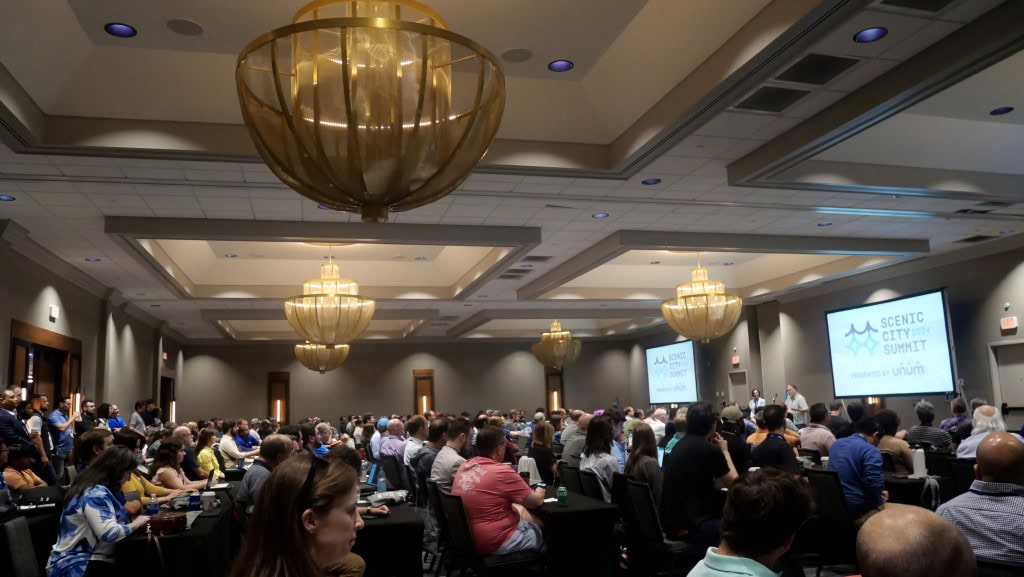My second guest is Mark Vaillancourt (whose last name makes me very happy for the copy and paste feature), who is an Information Management consultant working for Digineer, and is a Regional Mentor for PASS in Canada. Mark is also a speaker at SQL Saturday events, as well as the SQL PASS Business Analytics conference in 2013.
Mark has been blogging regularly since early 2009 on his website (http://markvsql.com/), and interestingly, has degrees in English and Theater, two degrees that almost always lead one into a career in technology. His twitter account, @markvsql, is also quite active with over 6400 tweets to date. To be honest, I don’t enter into this interview knowing nearly as much about Mark Vaillancourt as I did about Thomas LaRock in entry #1, as Mark is more involved in Business Intelligence while I spend most of my conference and blogging time in the OLTP/Relational Engine side of things. I am looking forward to learning more about his writing process and his career in his answers to the following five questions.
Mark is currently working on his first white paper to be published via Digineer’s website. He wouldn’t reveal the topic, but describes it as a topic that he feels is under-served and will help a lot of people. I hope he will give me the link to include in this interview when he gets it finished.
——————————————-
1. Every superhero has an origin story, and in many cases it wasn’t because they specifically were planning to go into the field of superhero-ness. I mean, clearly Peter Parker didn’t really want to get bitten by a radioactive spider. So what is your story that led you to spend part of your free time writing about SQL?
In my early days at Digineer, Lara Rubbelke, who actually hired me during her tenure there, encouraged me to blog about my experiences learning SQL Server. Since I was hired there having never worked with SQL Server before, there were sure to be many learning opportunities. Whenever we would talk about the obstacles I was encountering and what I was doing to overcome them, she would always end the conversation with, “Blog about it.” I finally took her advice and got a blog connected to the old Digineer website. It was some time later that I ended up heading out on my own for my blog, including getting my own domain, with a lot of great advice from Jason Strate. Jason pointed me to, among other things, Brent Ozar’s series about blogging. That was really helpful in getting going. (Editor note: here is a link to his advice on his blog a few years back http://www.brentozar.com/archive/2008/12/how-start-blog/)
2. We all have influencers that have advanced our careers as writers. It may be a teacher who told you that you had great potential? Another writer who impressed you that you wanted to be like? Or perhaps on the other end of the spectrum it was a teacher who told you that you were too stupid to write well enough to spell your own name, much less have people one day impressed with your writing? Who were your influences that stand out as essential parts of your journey to the level of writer you have become?
I had a teacher in high school for English, and also for Creative Writing, named Richard White. He taught me the power of verbs, the importance of dialog, and reinforced the old writing axiom, “Show; don’t tell.” While these three lessons were aimed at fiction, I try to keep them in mind in my technical writing, as well. I try to make my writing sound like I am just speaking. To me, in essence, a blog post is a presentation I only have to give once; a presentation that keeps on presenting, if you will.
I have also been fortunate enough to have an unofficial blogging mentor: Jason Strate. While he was working to take his own blogging to the next level, he was constantly sharing lessons learned with me. Whether it be a new tool he had tried or just even a bit of blogging philosophy, he set a great example. Many thanks to Jason.
3. Can you describe the process you go through to write (including any tools you find indispensable), from inception of an idea until it gets put out for consumption?
As far as tools go, Snag-It is the best thing ever. I love that application, and not just because my laptop lacks a “Prt Scn” key. It is so easy to capture screen shots of just about anything and apply highlighting, arrows, shapes, just about anything. I rely on it heavily for images I use in my posts, and sometimes presentations as well.
Although it is not really a tool, I have to say the Flickr is an AWESOME place to get images for blogs and presentations. Jason Strate showed me that one several years ago. Just filter your search for Creative Commons content and provide links to the source for the images you use and you are off to the races. I have found so many great images out there.
As far as process, I don’t know that I have one. But I think I can nail down some actions that I tend to take during the creation of many of my posts.
- Find/Create a fun dataset.
- The people that created the AdventureWorks database worked very hard to do so and provided examples of a lot of different things in the process. They deserve our gratitude. However, I try very hard to avoid having my blog posts and presentations be about selling bikes and accessories. If you look over my posts, you will see data examples relating to Super Heroes, The Smurfs, Romeo and Juliet… Keeping the datasets fun is part of what makes it fun for me.
- If I am demonstrating how to perform some set of actions, I make sure to number the steps as well as the Figures (screenshots, etc) used. Then, I truly document every step along with the expected outcome of each. That takes time. And I am OK with that. When one considers how long a blog post will be “out there” after it is posted, taking the time to make it solid and clear is well worth it. It drives me nuts when documentation skips some steps in the middle of a process while assuming you just “know” to do them.
- When screenshots are not appropriate to the topic, I make sure to find some fun pictures from Flickr to use. I make sure to choose images that are loosely related in some way to what I am writing about, but a bit entertaining as well. A picture of Devil’s Tower makes perfect sense in a post about ones experiences at a SQL Saturday in Chicago. And a 1960s era Ladies restroom sign is the ultimate homage to the Women in Technology Luncheon at the PASS Summit.
4. Assume a time machine has been created, and you are allowed to go back in time to speak to a group of potential writers, in which you and I are in attendance. What would you tell "past us", and do you think that your advice would change where you and I are in our careers now? <like would you tell yourself that one day you would be sitting here for a rather long period of time answering interview questions and not getting paid for it, instead of…?>
The best advice I could give “past us” is the same advice I give people who tell me they want to blog but are apprehensive.
- Don’t be afraid to blog because you feel you don’t know enough. If everyone waited until they knew everything before blogging or presenting, we would have ZERO bloggers and presenters. Blog now; learn while you do it.
- Don’t be afraid to blog about topics that others have already covered. People learn in different ways. While the topic may be the same, YOUR way of explaining may be exactly what someone needs for that AHA moment that has been eluding them.
- Don’t be afraid of making a factually incorrect statement and getting called out on it. Mistakes happen. Do your best to verify what you are writing (you will learn a lot during this activity) and you will be fine. If you think a particular statement is true, but are unsure, say so and indicate why. Be honest about what you are writing and people will respect that.
5. Finally, beyond the "how" questions, now the big one. There are no doubt tremendous pulls on your time. Why do you do write?
I have a few different answers to this one.
Before joining Digineer, I worked in general IT. Our department had a purple binder entitled, “Learned the Hard Way – or I don’t EVER want to have to figure this out again.” In that binder we placed really obscure problems we encountered along with their solutions. These were issues that happened so infrequently that remembering the details between occurrences was just not going to happen. Sometime I use my blog as my purple binder.
I went to college with the intention of becoming a high school English Teacher. I got as far as student-teaching in a local middle school and even substituted a few times. When I discovered Theater, I ended up putting my main focus into acting. Even so, I am still a teacher at heart and LOVE sharing knowledge with other people. Blogging and presenting are an extension of teaching, as far as I am concerned.
There is a poem commonly attributed to Ralph Waldo Emerson (although there is a bit of controversy about that) that really sums up why I do most things. I have loved this poem since high school and try to keep true to its meaning.
Success
To laugh often and much;
to win the respect of intelligent people
and the affection of children;
to earn the appreciation of honest critics
and endure the betrayal of false friends;
to appreciate beauty; to find the best in others;
to leave the world a bit better,
whether by a healthy child,
a garden patch
or a redeemed social condition;
to know even one life has breathed easier
because you have lived.
This is to have succeeded.
Blogging is one of the ways that I work toward achieving Success.
——————————————-
Wow, that was quite an interview, chocked full of good advice, and something most blogs about technical writing will not have…controversially attributed poetry. Some of my favorite bits include noting that blogging/writing is a great way to learn, and you don’t need to be perfect to start. I find that the research I do to try to avoid being wrong makes working hours on a seemingly simple topic often well worth it when I am working during the day (during the getting paid part of the day!). And you don’t have to be perfect, as long as you try to get it right, are somewhat interesting and provide something for readers to learn (and remember, there are many levels of readers out there). When you are wrong, a reader or two will tell you… I promise. (Thick skin is very helpful for public writing!)
So far, my biggest surprise has been that I haven’t gotten a particular answer to the time machine question. Stay tuned, someone soon is bound to answer what I have expected (and then I will add a supplementary entry to admit to the answers to the questions I would give myself!)
To the focus of the series, I now have three reasons why my first two interviewees write:
1. Because there are words that have to be written
2. Keep up with stuff I know
3. Working towards success
The second answer is definitely high on my list, but it certainly isn’t quite enough to keep me typing on this keyboard week in and week out in my free time (when minimally I could be building something with my Legos and preserving the springiness of the keys on my keyboard.) So the quest continues, with my next subject Rob Farley, who will hopefully get us one step closer to the answer to the question of why we write.





Load comments